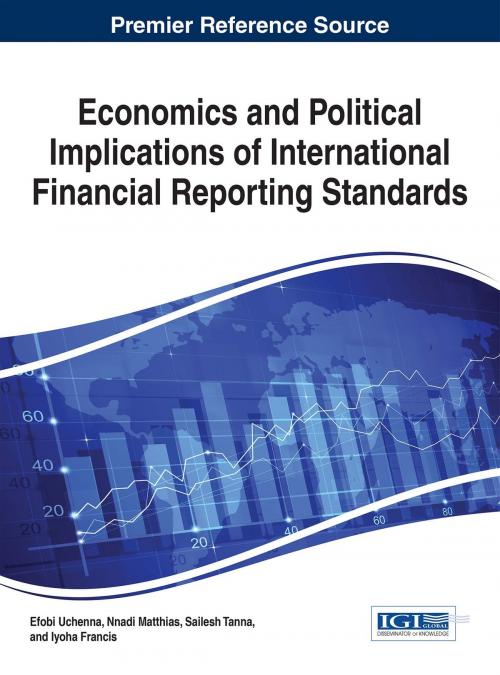Economics and Political Implications of International Financial Reporting Standards
Business & Finance, Economics, International Economics, International| Author: | ISBN: | 9781466698789 | |
| Publisher: | IGI Global | Publication: | March 8, 2016 |
| Imprint: | Business Science Reference | Language: | English |
| Author: | |
| ISBN: | 9781466698789 |
| Publisher: | IGI Global |
| Publication: | March 8, 2016 |
| Imprint: | Business Science Reference |
| Language: | English |
International Financial Reporting Standards (IFRS) are internationally-recognized financial reporting guidelines regulated by the International Accounting Standards Board (IASB) to ensure that uniformity exists in the global financial system. In addition to regulating financial reporting, the adoption of IRFS has been shown to impact the flow of foreign capital and trade. Economics and Political Implications of International Financial Reporting Standards focuses on the consequences and determinants of the adoption of the International Financial Reporting Standard (IFRS), which has remained a top issue in International Accounting. This timely publication brings to the forefront issues related to the political and economic influences and impacts of IFRS in addition to providing a platform for further research in this area. Policy makers, academics, researchers, graduate-level students, and professionals across the fields of management, economics, finance, international relations, and political science will find this publication pertinent to furthering their understanding of financial reporting at the global level.
International Financial Reporting Standards (IFRS) are internationally-recognized financial reporting guidelines regulated by the International Accounting Standards Board (IASB) to ensure that uniformity exists in the global financial system. In addition to regulating financial reporting, the adoption of IRFS has been shown to impact the flow of foreign capital and trade. Economics and Political Implications of International Financial Reporting Standards focuses on the consequences and determinants of the adoption of the International Financial Reporting Standard (IFRS), which has remained a top issue in International Accounting. This timely publication brings to the forefront issues related to the political and economic influences and impacts of IFRS in addition to providing a platform for further research in this area. Policy makers, academics, researchers, graduate-level students, and professionals across the fields of management, economics, finance, international relations, and political science will find this publication pertinent to furthering their understanding of financial reporting at the global level.















